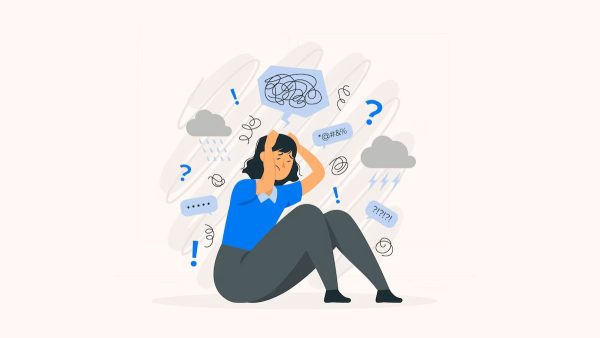You’ve probably heard of the reality TV star Kendall Jenner, the infamous supermodel who can regularly be seen on the hit show, “Keeping Up With The Kardashians.” She is often seen as a put-together, confident person. What you may not know is that she struggles with an anxiety disorder. In an interview with Vogue, Kendall shared, “I remember being young and having shortness of breath and going to my mom and telling her. In hindsight now I know that that was anxiety.” Anxiety is a mental health disorder that can affect anyone. It is normal to feel anxious, but when those feelings of anxiety start to become constant, you may have an anxiety disorder. According to The National Institute of Mental Health(NIH), symptoms of an anxiety disorder include trouble sleeping, feeling irritable or restless, sweating, trembling, shaking, or more. Anxiety is an everchanging thing, it varies for everybody. It is common for people with an anxiety disorder to stay away from large gatherings, places where they may have to speak to groups of people, participate in group projects, and classes where speaking aloud is required. However, the symptoms are unique depending on the person.
Anxiety disorders are a type of mental health condition that can have a significant impact on a person’s daily life. They can create feelings of intense fear, worry, and apprehension that make it difficult to carry out normal activities. If left untreated, anxiety disorders can also lead to other serious mental health issues such as depression and social isolation. Depression is a grave mood disorder that can cause persistent feelings of sadness, hopelessness, and loss of interest in activities. Social isolation can occur when someone withdraws from social interactions and relationships, leading to a sense of loneliness and disconnection from others.
Anxiety is an everchanging thing. Someone with a severe disorder may stay away from large  gatherings, places they may have to speak to groups of people, group projects, and classes where speaking aloud is required. However, an anxiety disorder does not have to be so severe. When speaking in front of the class, they may fidget with their hands, shake their leg, or stutter when talking; this may cause a person to have decreasing grades in their classes where public speaking is used or participation is heavily graded. On the contrary, some people could have severe anxiety about their grades. The effects of an anxiety disorder on their school life are always fluctuating and anxiety makes someone’s school life more challenging.
gatherings, places they may have to speak to groups of people, group projects, and classes where speaking aloud is required. However, an anxiety disorder does not have to be so severe. When speaking in front of the class, they may fidget with their hands, shake their leg, or stutter when talking; this may cause a person to have decreasing grades in their classes where public speaking is used or participation is heavily graded. On the contrary, some people could have severe anxiety about their grades. The effects of an anxiety disorder on their school life are always fluctuating and anxiety makes someone’s school life more challenging.
When someone gets diagnosed with anxiety there are many types of treatment. Your doctor may suggest that you take an antidepressant, depending on the severity of your anxiety disorder, although, there are also many other methods to help with your anxiety. According to the Mayo Clinic, the feel-good endorphins that are released when you exercise can help calm your anxiety. Going on a quick walk, playing soccer or football in your backyard can aid in easing your anxiety. Another way that you can help decrease your anxiety levels would be to get more sleep. Getting enough sleep at night is extremely important and not getting enough sleep can cause someone to be more at risk of an anxiety disorder. Another suggestion would be to take your mind off your anxiety. Watching a movie, listening to your favorite songs, or conversing with your friends or family are all great ways to eliminate your anxious thoughts.
If you have been experiencing the symptoms of an anxiety disorder or are already diagnosed, there are many resources here in Calvert County that can help support you and your anxiety. You can contact Calvert County Behavioral Health inPrince Frederick or Lusby, Maryland, or the Southern Maryland Mental Health Center in Prince Frederick, Maryland. It is important to recognize your feelings of anxiety and what treatment is right for you.
Sources
https://www.somdmentalhealth.com/
https://www.calverthealth.org/personalhealth/substanceabuse/index.htm
https://www.betterhealth.vic.gov.au/health/conditionsandtreatments/anxiety-disordershttps://www.ncbi.nlm.nih.gov/pmc/articles/PMC8699379/











